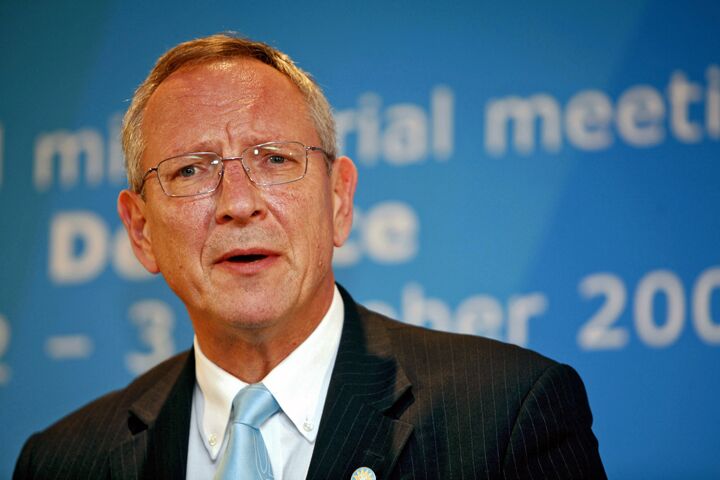
Finance Crisis May Force European Armies to Work Together
How do you save billions of dollars on the defense budget while not sacrificing crucial military capabilities? Defense ministers around the world are faced with this question. In Europe, some experts are discussing one possible answer.
“Financial stability is increasingly being regarded as a key security issue in a globalized world,” said Elke Hoff, the defense policy spokeswoman for Germany’s Free Democrats (fdp), last month.
“Budgetary and security considerations will raise pressure to find a joint defense and security policy,” she said.
Working together could allow European nations to cut costs without cutting their military power. Nations could get rid of overlapping areas and focus on building a mutually dependent military.
If the financial crisis means that Europe’s armies work together, they could emerge much stronger when taken as a whole.
Nick Witney, a senior policy fellow at the European Council on Foreign Relations and former head of the European Defense Agency, said, “I hope that … once the dust has settled from this financial collapse people will look around and say, ‘We will have very little defense capability left if we continue to duplicate it all on a national basis,’ so the logic of pooling efforts and resources will, I hope, reassert itself.”
This already seems to be the case. British Defense Minister Liam Fox, who is trying to cut his department’s budget by around 10 percent, said in May that Britain should step up bilateral cooperation on defense “particularly with nations who share our interests and are prepared to both pay and fight, such as France.”
Germany too is looking to slash its defense spending. Defense Minister Karl-Theodor zu Guttenberg wants to get rid of conscription—a costly process that many in the army don’t even want. Conscripts can do little useful work in the six months that they spend in the army and so are often left to do nothing or given meaningless tasks.
Robert Hochbaum, a Christian Democrat and member of the German lower house of parliament’s defense committee, also suggests that certain European countries streamline their armed forces. “It’s high time for this. We’re not talking about creating new structures, it’s about supplementing each other,” he said.
In July, French Defense Minister Herve Morin met with Guttenberg where they established a working group to examine “areas where resource sharing and pooling could be initiated” with a view to “budget reductions and economies of scale.”
Of course this does not mean a common European army will appear overnight. At first, nations are more likely to work together in non-critical areas rather than having France defended by German tanks, for example.
“I’m personally skeptical about multi-state units,” said Witney, “however, there are sectors where reinforced cooperation is politically acceptable, for example in research and development, and in defense infrastructure. There is no reason why each country should have its own structures to maintain and repair equipment. The same applies for weapons testing, munitions and explosives evaluation, wind tunnels used for aircraft design and warship testing basins.”
Europe’s way is to begin slowly—to start with the thin end of the wedge. It may start with European nations cooperating in minor areas, but a common European Army is coming. For more information, see our article “Is a World Dictator About to Appear?”
